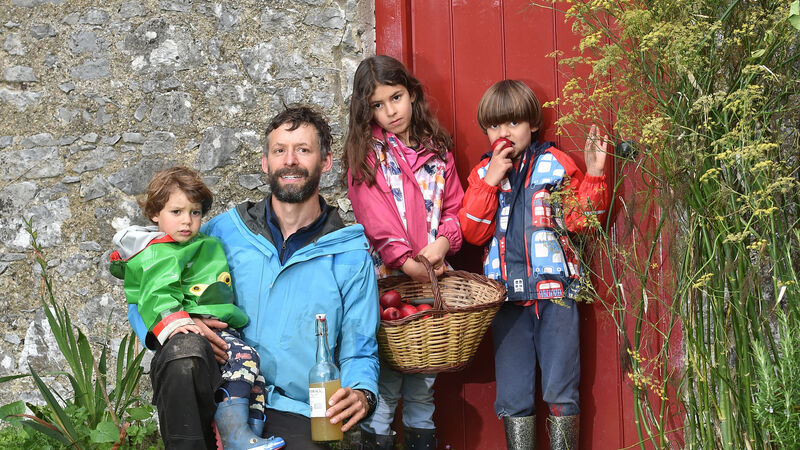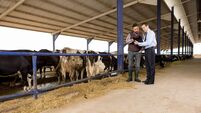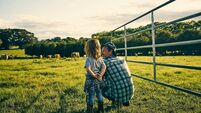Bringing an old and new world order together making food the solution

Patrick Frankel and his children Thomas, Corali and two year old James on Kilbrack Organic Farm, Doneraile, Co Cork where the apples for their organic apple juice are grown. Picture Dan Linehan
When Patrick Frankel came back to his home at Kilbrack Farm in Doneraile, Cork in 2005, little did he realise the changes that were in store for him and the farm, despite the financial crash that was on the horizon.
The seeds were being sown for the fusion of an old and new world order in Doneraile that day and for Patrick and his wife Judith it has been a journey of nurturing, attention to detail and creativity ever since.













